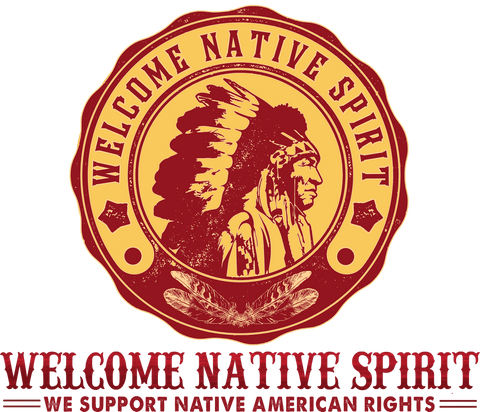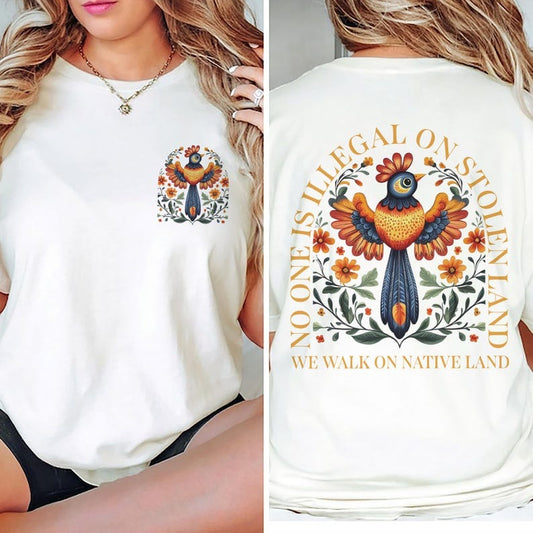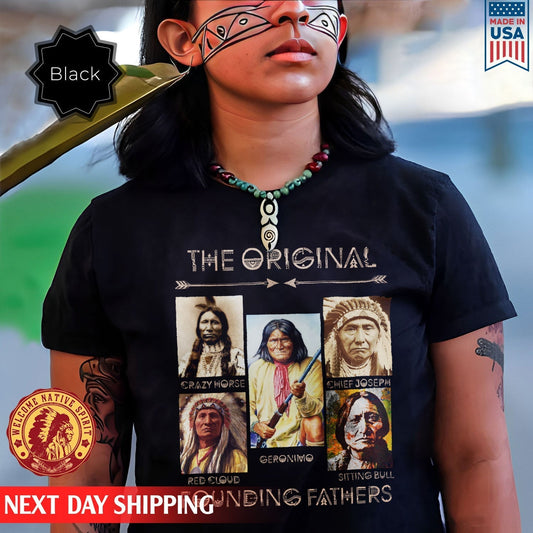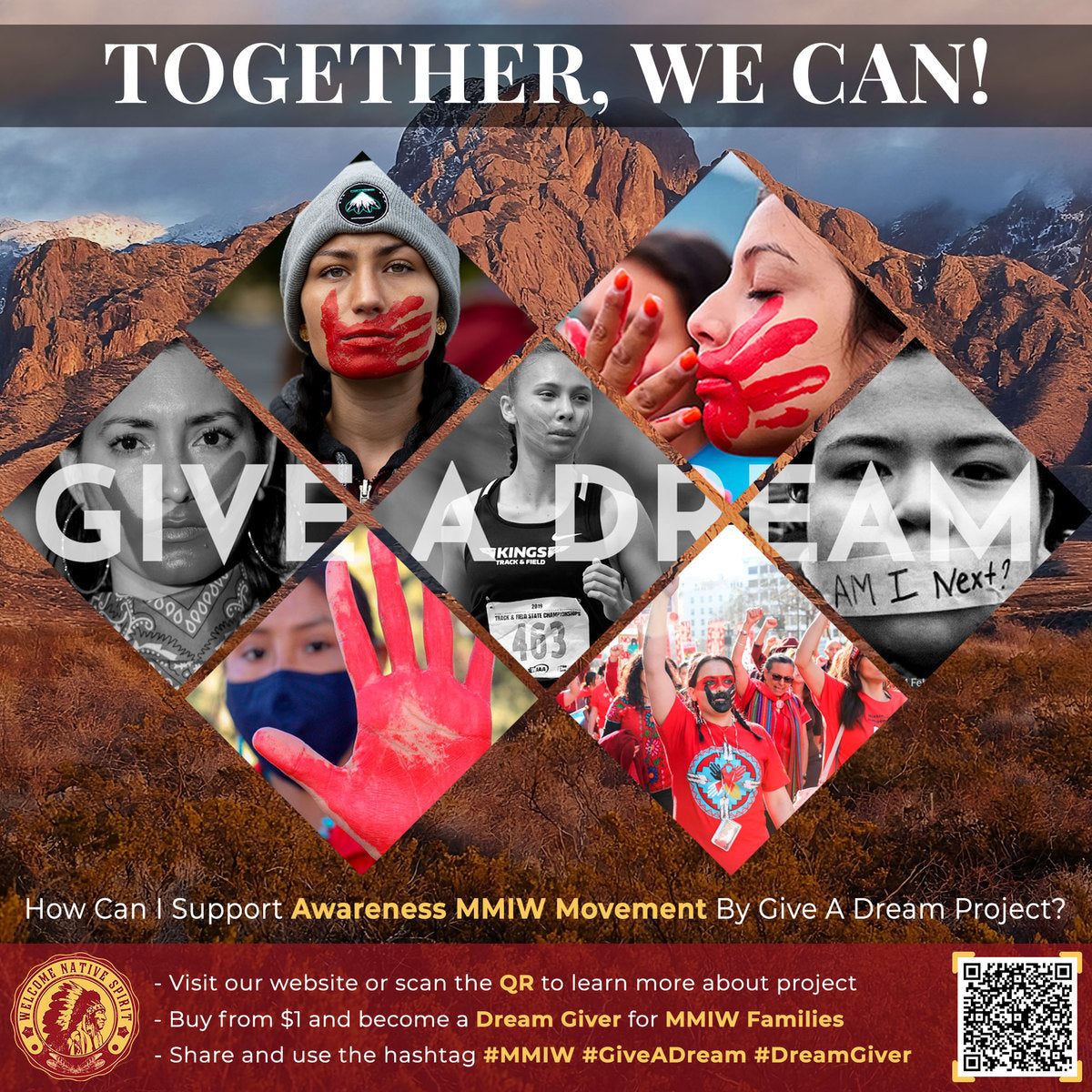The Indigenous-led Medicine Wheel Ride brings in a record 220 registered participants for the South Dakota event.
For the fifth year, a thunderous roar echoed through Bear Butte State Park on the first Sunday of the annual Sturgis Motorcycle Rally. Streaks of red ribbons flew in the wind and more than 200 motorcyclists took off from the park to raise awareness for Missing and Murdered Indigenous Relatives.
Typically, riders make their way to the Crazy Horse Memorial for an afternoon of prayer and education. Due to construction this year, riders stopped in Deadwood instead for a documentary screening at Outlaw Square.
“I think this is going to be such a good way to end it,” said Prairie Rose Seminole, co-director of “We Ride for Her,” a documentary about the Medicine Wheel Ride. “Sturgis has a history of sex trafficking and there needs to be awareness made in this space. This allows us to not only bring awareness but claim the space. We belong here too. We’re changing the motorcycle culture to reflect who we are as Indigenous people.”
Seminole, who is Arikara and Northern Cheyenne, chose to focus the documentary on the Medicine Wheel Riders to highlight the group’s grassroots efforts to educate others on MMIR.
“When we found the Medicine Wheel Riders, we thought this would be perfect (for the documentary), because here’s a group of Indigenous women who are moving their grief into action and advocacy and establishing a mutual aid network for those going through the crisis,” Seminole said.
Moving the ride to Deadwood brought new opportunities to educate the general public on MMIR and end on an educational note by broadcasting “We Ride for Her.”
“Going out in those spaces, I feel a bit nervous, because how is our message going to be received?” said Lorna Cuny, Oglala Lakota and co-founder of the Medicine Wheel Ride. “We have a lot of outside influence at our event, but overall it was just an amazing event.”
With a sponsorship from the Harley-Davidson Corporation, riders showed the documentary “We Ride for Her” in Deadwood Square. From the rooftops of surrounding businesses, different attendees could watch the documentary while eating.
The bike rally is one of the primary drivers of human trafficking in South Dakota, according to Native Hope, a South Dakota-based non-profit organization that aims to address inequalities facing Indigenous people.
Last year, five men were arrested following an annual sex-trafficking sting operation at the rally, and in the past decade, 76 men have been arrested.
A 2022 report from the House Subcommittee on Civil Rights and Civil Liberties Hearing stated that 40% of sex-trafficking victims in South Dakota are Native American women, despite Native women only making up 8% of the state's population.
Deadwood has a long history of human trafficking and sex work, something Cuny learned during a tour of the city.
“(The tour guide) showed me shackles they had on the floor in some of the buildings where they would chain our women and traffick them,” Cuny said. “So it was really powerful for us to bring our message to Deadwood, because right up the street and surrounding us were places where our ancestors were trafficked and mistreated.”
From 1876 to 1980, sex work was common in Deadwood. Brothels were ultimately shut down in 1980 following a brief halt in 1950. Cuny said she was told Indigenous women were treated horribly during this period.
Traffickers often seek individuals who are impoverished, isolated or come from an abusive home.
“We are working to bring awareness to it,” Cuny said. “We need to reach people outside of our communities. People don’t always want to acknowledge it but this is an issue. Sturgis is a place where people come to party, not to learn about these types of things.”
Sturgis isn’t the only time riders raise awareness for MMIR. Over the past week, Cuny and several Medicine Wheel Riders traveled over 2,000 miles, stopping in different Indigenous communities to discuss the epidemic.
“The stories are what sticks with you,” said Corrine Tuma, a Navajo Medicine Wheel Rider from the Wind River Reservation in Wyoming. “Sometimes you don’t mean to cry because you’re supposed to be the strong one, but there’s times where you hear something and just start crying. But that’s just you showing that you care.”
The ride across America and during Sturgis also serves as a major opportunity to educate non-Native people on issues facing Native communities.
“We were standing in line talking, bringing awareness like we do, and there were a couple of older men waiting in line to get in,” Tuma said. “I talked with them for quite some time. When we got out (of the movie) I could see one of the men looking around for me. He was crying. He said, ‘That was so inspirational, moving and awesome.’ He said he was going to keep up with us. It made my heart feel really good, knowing that I got to bring awareness to someone about what goes on.”

MMIW No More Stolen Sisters Red Hand Shirt 019 - Buy Here













2 Comments
I wear my shirts to a lot of events and people ask questions about the shirts and I share with them why I wear them. I hope in some tiny way I am helping people
What a terrific way to keep this important cause of awareness of this abuse of Native Women in the forefront of the minds of supporters. I have purchased several items from your website! I always look forward to cooler weather so I can wear my Red Hoodie!
Many Blessings ans Respect